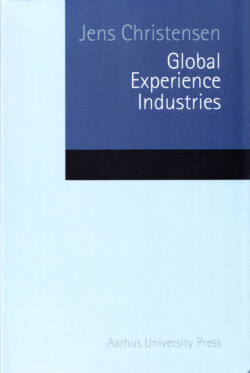Читать книгу Global Experience Industries - Jens Christensen - Страница 27
На сайте Литреса книга снята с продажи.
Reservation Systems
ОглавлениеThe large American airlines played an active role in developing international tourism. Not only did they transport people, they also used the emerging liberalization of the 1980s to turn their reservation systems into a dynamic driver of many sub-sectors of tourism. The majority of travel agencies were being linked to the leading airlines’ reservation systems, and by 1990 in the United States a triopole of American Airlines’ SABRE, United Airlines’ APOLLO, and WORLDSPAN, merged Trans World Airlines, Delta Air and Northwest Airlines, controlled 90 percent of all American travel agencies.34
Threatening to enter Europe, West European airlines quickly responded to the American challenge in reservation systems. First they tightened their hold on national travel agencies. British Airways took control of Travicom and thereby most British travel agencies. In Germany, Lufthansa did the same through Start, and SAS through Smart in Scandinavia. Next, the airlines prepared for an approaching liberalization of West European aviation that inevitably would bring the larger American reservation systems into a stronger position, if no countermeasures were taken. In the late 1980s, the leading European airlines initiated the building of two common international reservation systems that on a global scale were able to make a stand against the American systems. Lufthansa, Air France, Iberia and SAS developed AMADEUS, while GALILEO was established by British Airways, Alitalia, Swissair, and KLM in cooperation with American APOLLO of United Airlines, which formed the basis of Galileo. Both systems ‘took off’ in the early 1990s, just before the liberalization of the European aviation market.
By way of the alliance with United Airlines, the four European airlines behind Galileo bridged the Atlantic, while Sabre was already moving into Western Europe. A similar development took place in Asia. Japan’s largest airline company, All Nippon Airways, Hong Kong’s Cathay Pacific Airways, and Singapore Airlines, developed their common reservation system ABACUS. By the end of the 1990s, Abacus merged with Sabre. Since the late 1990s, four reservation systems dominated world air transportation: Sabre, Galileo, Worldspan and Amadeus (reduced to three since 2006 when Galileo merged with Worldspan under the name Travelport).
As a consequence of liberalization or deregulation, the four global reservation systems eventually separated from their mother companies and were turned into independent global distribution companies open to any customer, although mother companies kept a preferred position in a transition period. Large databases of these distribution systems contained all vital travel information and became the basis of linking sellers and buyers of travel services and eventually many other kinds of tourism services, including every form of transportation, accommodation, car rental, insurance, travel agencies, etc. At the same time, the booking systems of the individual airlines were reduced to internal warehouses.
Hardly had the four systems conquered the world market of travel information distribution when they were challenged by a new technology, the Internet. The breakthrough of the Internet since the late 1990s paved the way for web-based travel agencies that threatened to reduce the global reservation systems into pure transaction systems. At the same time, these online travel agencies and tour operators were not only customers of the large distribution systems but also their competitors. Sabre, Galileo, Worldspan and Amadeus met the new challenge in two ways. Firstly, they developed improved search and decision support systems to their many customers in the travel business. Secondly, they started or bought strong and expanding online travel agencies to create the vital direct link to consumers.
The competition in consumer distribution channels intensified. All actors moved their activities upwards in the value chain from simple distribution to online services. In the same way, airlines built web-based links to their customers, as did Sabre, Galileo, Worldspan and Amadeus, as well as web-based travel agencies and tour operators. Since the early 2000s, distribution companies, airlines, travel agencies and tour operators, and even hotels and other services providers of the tourism industry, have all established online relations to consumers.
